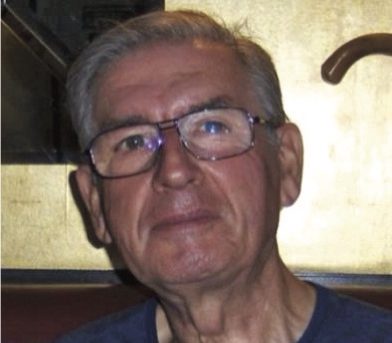Melanie Butler recalls the influence of a cherished friend and mentor
“You have to look at everything in ELT, every aspect,” Roger Bowers, who has died aged 77, would always tell me. “You have to see the whole picture.” And, for 50 years, he not only managed to know almost everything there was to know about the ELT profession – he refused to call it an industry – he wanted to harness that knowledge to unite it.
I was a wet-behind-the-ears newspaper editor when we first met. He took me under his wing and, determined to educate me, sent me reports to read, seminars to attend and regular updates on the Council’s latest plans.
My best inside source as a journalist, he would pick my brain in return. After yet another workshop, or the presentation of yet another British Council organigram, we would sit in the fug of the smoking room at the Council’s London headquarters, exchanging scuttlebutt about Spanish language schools or the latest tittle-tattle on takeovers in ELT publishing.
Often warm and charming, his intellectual acuity and grim determination could be disconcerting. He reminded me of the clever young men of my end-of-Empire childhood in Africa, who were just down from Oxbridge with a half-written novel in their back pocket, sent out to Africa to ‘run’ Togoland or the Masai Mara.
His early career with the Council, which he joined in 1965, also has the ring of Empire – Ghana, Egypt, India – but Roger was strictly a Post-Colonial; the only empire he was interested in building was the empire of the English language, and it was the power of American English he wanted to contain.
“He understood the power of the new methodology and used it to unite the warring sectors of British EFL and drive the profession forward.”
It was his understanding of the changes taking place in UK Applied Linguistics which was his greatest strength. It was the 1980s, and the Communicative Revolution was gaining ground. Roger had been seconded to teach at the University of Birmingham and then completed his PhD at the University of Reading, both hotbeds of new ideas. He understood the power of the new methodology and used it to unite the warring sectors of British EFL and drive the profession forward.
He always kept an eye out for the competition. When a young Stephen Krashen gave a triumphal speech at Iatefl, he commented, “Very interesting – but it will never work in Europe.”
From the mid-80s he used his post as Director of the British Council’s English Department to coax and chivvy the squabbling sector to work together. British ELT school owners would groan when referred to as “our language school constituency.” “Nobody elected him,” they would say, though they were grudgingly grateful that somebody was listening.
“He spends too much time talking to Cambridge,” exam boards would grumble. “He spends too much time on the others,” Cambridge would glower back. The publishers, all 24 of them, were busy fighting like ferrets in a sack – though when he talked, they listened.
By 1989, he had achieved his aim. A government report on Cultural Diplomacy found that UK schools dominated language travel, UK publishers were number one in the global book market and while the Americans still led in testing, the new skills- based exams like IELTS were rapidly catching up.
He had marched us up to the top of the hill. And then the Berlin wall came down.
Bringing English to Eastern and Central Europe was Roger Bowers’ finest hour. While the US parachuted in regiments of ill-trained native speakers, Roger devised a plan to build a network of local English specialists to retrain the teachers of Russian, teaching them English and using Cambridge exams as a way of measuring their progress. I thought he had gone mad.
“They don’t speak English,” I objected. “They are good linguists,” he retorted, “from a great tradition of language teachers. They can do it.” And they did.
Roger’s reward was to become Deputy Director of the British Council and be put in charge of setting up a new headquarters in Manchester. I’d never seen him so happy.
While his long-term partner, Jenny Pugsley, knocked the accreditation scheme into shape, Roger, no longer confined to EFL, became fascinated by the challenge of making the Council more business-like. “We’ve had some really great management consultants in, Melanie,” he told me as he unveiled the latest restructuring plan, “you would have loved their ideas.”
When he left the British Council in the late 1990s, he bid to set up an Institute of ELT funded by the Council. The project instead went to a young man who had a plan to run it on the cheap out of his back bedroom. It sank without a trace. It was the end of the dream for a recognised ELT profession.
But it was not the end of Roger Bowers. He went on to run Trinity College London, immersing himself in the world of dance and drama while Jenny weaved her magic on the Trinity ESOL teacher training department. After he retired in 2006 he became chairman of the Hornby Trust. He and Jenny were married in 2009.
Roger Bowers OBE, CMG died on the 21st of April. Two days later, an Early Day motion was laid in the British parliament calling on the government to save the British Council.
We shall not see his like again.





